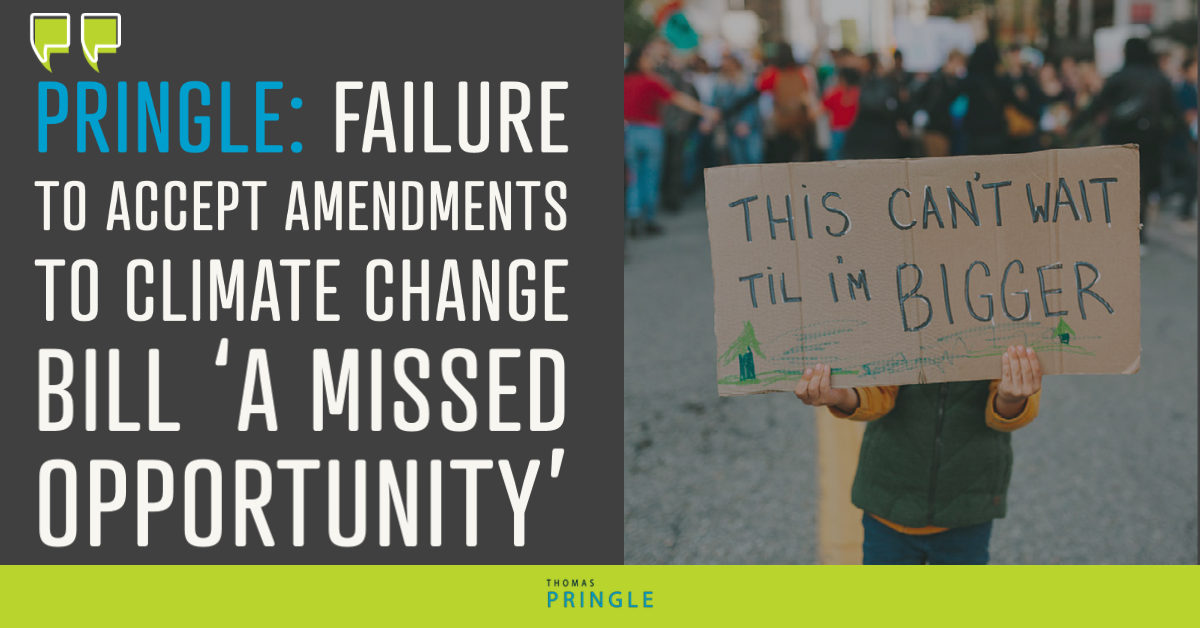- Pringle: We need a policy that recognises the importance of inshore fishing
- Pringle: Disabled people and carers face crisis of State neglect
- Pringle: Failed FF/FG housing policies forcing people to put their lives on hold
- Pringle welcomes Donegal council motion on Occupied Territories Bill: ‘We cannot stand by in the face of genocide’
Pringle: Failure to accept amendments to climate change bill ‘a missed opportunity’
- Updated: 17th June 2021

Independent TD for Donegal, Thomas Pringle, said the Government’s failure to accept any opposition amendments to the bill on climate change was a missed opportunity to strengthen the important bill.
Deputy Pringle said: “We are talking about one of the most significant issues to face not just our country, but our world. But this Government was more interested in guillotining debate and railroading this bill through the Dáil.
“Working with my independent colleagues, Deputies Catherine Connolly and Joan Collins, and consulting with activists, NGOs and academics, we put forward a number of amendments that would have defined what we mean by climate justice and just transition, clarified target-setting criteria, and called on Ireland to take a leadership position in relation to a global ban on fracking.”
Proposed opposition amendments to the Climate Action and Low Carbon Development (Amendment) Bill 2021 were debated for more than four hours in the Dáil on Wednesday evening, but no opposition amendments were accepted.
Deputy Pringle said: “So much needs to be said about just transition alone, that it probably should have been the subject of its own Dáil debate. The original bill did not include a definition of just transition and the language that was finally included in the bill is weak and unsatisfactory.
“Our just transition must be informed by climate justice, the concept that individuals, corporations and societies that have contributed most to the problem of global warming must contribute most to its solution.
“Here in Ireland, the move toward net zero Irish greenhouse gas emissions should support environmentally and socially sustainable jobs and low-carbon investment and infrastructure, but also develop and maintain social consensus through engagement with trade unions, communities and other vital stakeholders.
“Our transition should include the creation of decent, fair and high-value work in a way that does not negatively affect the current workforce and overall economy, and assist those whose livelihoods are affected adversely by the transition to a low-carbon economy to take up other work and to at least maintain their current income levels,” he said.
Deputy Pringle said: “The transition to net zero Irish greenhouse gas emissions is crucial. It must also be just. I will be paying close attention to the provisions coming from this bill to ensure that those who can least afford it are not left to pay for the necessary changes to come.”



